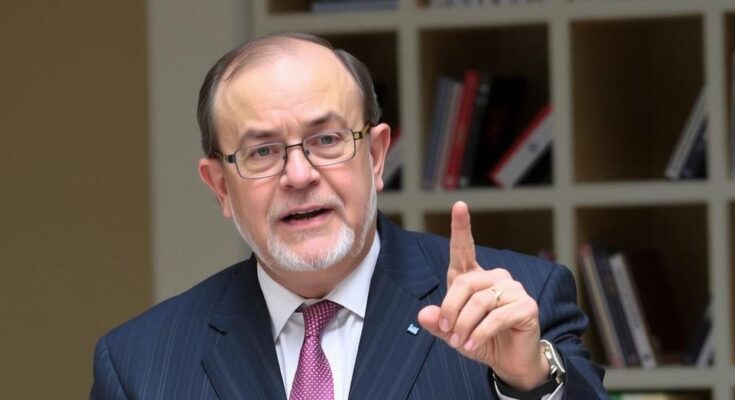Joseph Aoun has been elected as Lebanon’s new president after over two years without one, gaining support from international allies. His election comes amid a fragile ceasefire with Israel and significant reconstruction needs following recent conflicts. Aoun aims to implement judicial reforms, fight corruption, and address Hezbollah’s influence while navigating Lebanon’s complex political landscape.
Lebanon has appointed Joseph Aoun as its new president after enduring a vacancy in the presidential office for over two years. Aoun, a 61-year-old military commander who has led the Lebanese Army since 2017, was the unanimous choice among the United States, Europe, and Saudi Arabia, all of whom Lebanon will seek assistance from to reconstruct its war-torn nation. He assumes office following the end of Michel Aoun’s presidency in October 2022 after a protracted political deadlock marked by 13 failed voting attempts.
Joseph Aoun’s election occurs amidst a delicate ceasefire between Israel and Hezbollah, a period during which the country grapples with the ramifications of a financial crisis that began in 2021 and a military clash that left much destruction in its wake. The new president aims to tackle several pressing issues, including judicial reforms, combating corruption, and affirming the state’s monopoly on weaponry, a clear reference to Hezbollah’s influence.
In his inaugural address, Aoun emphasized his intention to address the Israeli presence in southern Lebanon and to facilitate the reconstruction of areas devastated by past conflicts. Analysts suggest that the recent struggles of Hezbollah and the diminished influence of its ally, former Syrian President Bashar al-Assad, contributed significantly to Aoun’s rise. Randa Slim, a senior fellow at the Middle East Institute, noted that Aoun has maintained a balanced relationship with Hezbollah, avoiding antagonism while refusing to surrender to its demands.
Celebrations broke out following Aoun’s swearing-in, with supporters engaging in traditional festivities, including fireworks and public displays of jubilation. The precarious political landscape of Lebanon presents Aoun with significant challenges as he seeks to unify a fractured nation beset by economic hardship and sectarian divisions.
Lebanon has been in a political stasis, with the presidential seat vacant for over two years, leading to widespread instability and concern within the nation and among international observers. The election of Joseph Aoun as president signals an important shift during a critical period in Lebanese history. His military background and the political context surrounding his election indicate that his administration will likely be focused on navigating complex relationships with domestic factions such as Hezbollah, while also engaging with international partners for support in restoring Lebanon’s fiscal health and infrastructure. Lebanon’s recent history includes a devastating financial collapse and heightened tensions with neighboring Israel, compounded by conflicts involving Hezbollah and ongoing geopolitical rivalries. The newly elected president’s strategies and policies are under scrutiny as many look to him for decisive action that could shape the future trajectory of Lebanon’s sociopolitical landscape.
Joseph Aoun’s election as president of Lebanon marks a significant pivotal point for the country, which has been marred by political paralysis and economic crisis. The support of international allies and his commitment to reform will be critical as he navigates the challenges posed by Hezbollah’s influence and works to stabilize a divided nation. His administration’s success in addressing issues of corruption and reconstruction will ultimately determine Lebanon’s path forward in this tumultuous period.
Original Source: nypost.com




